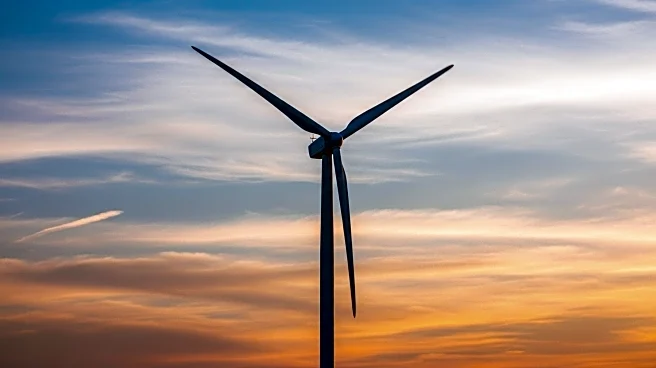What is the story about?
What's Happening?
Co-op has entered into a seven-year Power Purchase Agreement (PPA) with RWE to source electricity from the Gwynt y Môr offshore wind farm. This agreement is part of Co-op's ongoing efforts to decarbonize its operations. The wind farm, located in the Irish Sea off the coast of North Wales, will supply Co-op with 33 gigawatt hours (GWh) of clean energy annually. This amount is sufficient to power approximately 140 Co-op food stores or around 12,200 homes. The renewable electricity will support the energy needs of Co-op's food stores, distribution centers, and funeralcare sites across the UK. Heather Thomas, Group Property & Sustainability Director at Co-op, emphasized the importance of tackling the climate crisis and enhancing national energy security. RWE, which operates the wind farm, expressed enthusiasm for the partnership, highlighting the growing interest in sustainable energy solutions within the UK retail sector.
Why It's Important?
This partnership is significant as it underscores the growing trend of businesses committing to renewable energy sources to meet sustainability goals. For Co-op, this agreement is a step towards achieving its target of net zero operations by 2035 and across its entire business by 2040. The move also reflects a broader industry shift towards green energy, which is crucial for reducing carbon footprints and enhancing energy security. By leveraging its position as a major energy user, Co-op aims to assist other businesses in procuring sustainable energy, thereby promoting a collective effort towards a greener grid. This initiative not only benefits the environment but also positions Co-op as a leader in corporate sustainability, potentially influencing other companies to adopt similar strategies.
What's Next?
Co-op plans to continue expanding its renewable energy initiatives, including a solar panel installation program across up to 700 sites over the next three years. The company is also exploring further opportunities to support businesses in their energy procurement strategies through its Co-op Power proposition. As Co-op progresses towards its net zero targets, it is likely to engage in more partnerships and projects that align with its sustainability goals. The success of these initiatives could encourage other retailers to follow suit, contributing to a broader industry transformation towards renewable energy.















